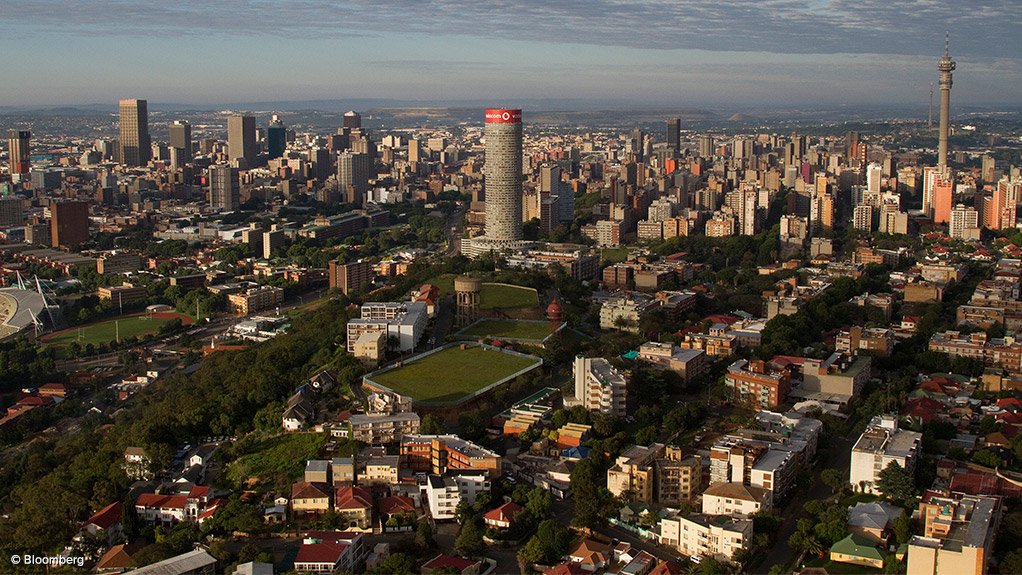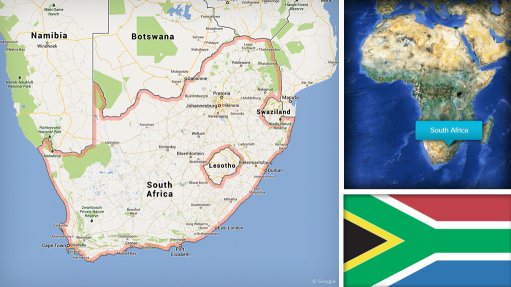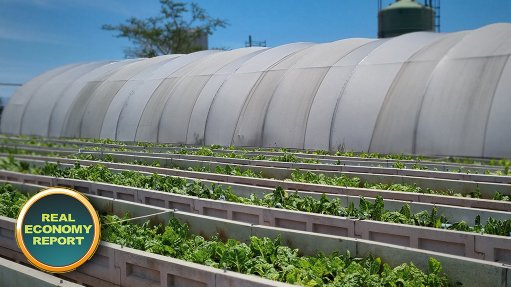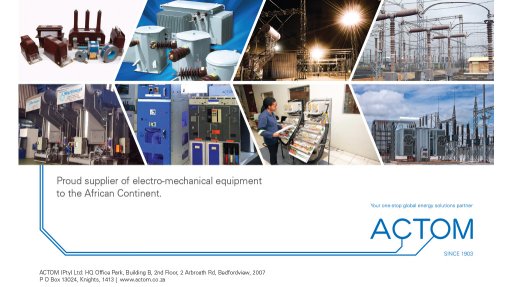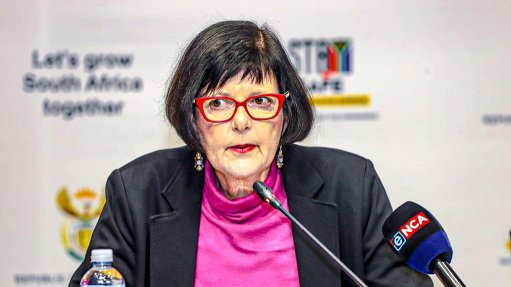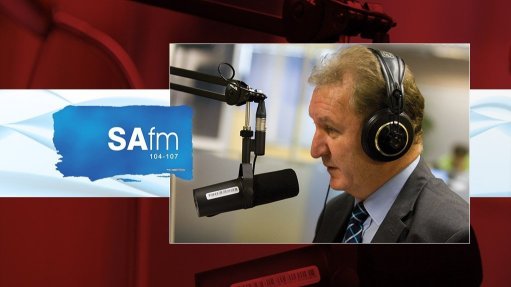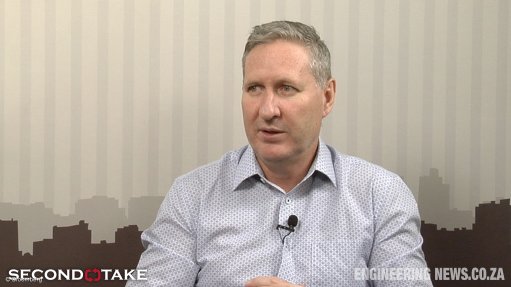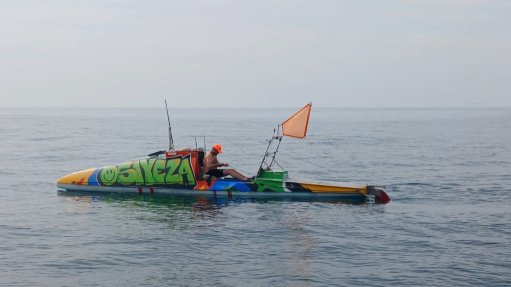Gauteng budget boosted by prior year rollovers, but medium-term spend remains tight
The Gauteng provincial government (GPG) has revised its expenditure for the 2019/20 financial year ending March 31, 2020, upwards by R443-million, increasing the yearly provincial budget to R132-billion.
This is owing to unspent or reallocated rollover funds from 2018/19, Gauteng Finance MEC Nomantu Nkomo-Ralehoko announced on Tuesday as she presented the province’s latest Medium Term Budget Policy Statement (MTBPS) and adjustments to the yearly budget.
The MTBPS will inform the forthcoming annual budget, which will be announced in March 2020. It also outlines the current state and outlook of the economy, while analysing the fiscal policy framework of the 2020 Medium Term Expenditure Framework (MTEF).
Currently, GPG expects to spend a consolidated R441-billion over the medium term from 2019/20 to 2022/23.
Of this amount, about R21-billion will be generated by GPG in the form of revenue, mostly from vehicle licences, casino licences and patient fees paid to the provincial Department of Health.
“The 2020 MTEF strives to change the composition of spending towards the stimulation of economic growth and attainment of value for money in the realisation of service delivery priorities,” Nkomo-Ralehoko highlighted.
The MEC added that one of the key deliverables of the Gauteng provincial treasury over the medium term would be to contain the provincial wage bill at a maximum of 60% of the total budget of the province. She called for a concerted effort by all departments of the GPG to ensure the wage bill did not exceed this threshold in 2019/20 and beyond.
An amount of R359-billion has been allocated to the GPG in the 2020 MTEF, supplemented by a R6.1-billion grant, totalling R365.6-billion. An adjustment of R1.3-billion was made to the total adjusted provincial equitable share, reducing it to R364-billion.
The variance between the final 2019 MTEF and the preliminary provincial equitable share for the 2020 MTEF amounts to R4.7-billion. “Although there is an increase in the provincial equitable share between the two MTEF periods, the R1.3-billion cut over the 2020 MTEF will be an additional burden on the already limited fiscus,” Nkomo-Ralehoko said.
ROLLOVER ALLOCATION
The Gauteng Department of Economic Development will receive a total rollover of R23.7-million, which will largely be used to pay outstanding invoices related to the procurement of information and communication technology equipment, as well as accruals.
Education has been granted a rollover amount of R46-million to settle unpaid invoices including for municipal services and school furniture.
A rollover of R26-million will be used on human settlements, while a rollover of R11-million will add to community safety spend.
The Department of Agriculture and Rural Development has been granted a rollover of R3.2-million, which will mostly be used for research initiatives, while the department’s main budget allocation is R5.6-million.
Sports, Arts, Culture and Recreation will receive an R8-million rollover amount towards infrastructure projects.
YEARLY ALLOCATION
In the sixth administration, the GPG has a strong focus on the Department of Health, given the immense pressures and challenges in the resourcing of healthcare services to the province’s 15.2-million citizens.
The MEC said that despite improvements in indicators such as life expectancy and reduced mother and child mortality, the financial wellbeing of the department continued to be of concern, given the persistence of accruals and the risk posed by medico-legal claims.
The allocation for the Health department in the 2019/20 year totalled R39-billion, primarily for the planning and procurement of the Occupational Health and Safety, Repairs and Refurbishment maintenance programme and for projects under construction.
The allocation increases further to R41-billion in 2020/21, R45.2-billion in 2021/22 and R47.3-billion in 2022/23.
The Department of Education’s allocation totalled R47-billion in 2019/20, R50-billion in 2020/21, R54.9-billion in 2021/22 and R57.5-billion in 2022/23.
The Gauteng Department of Transport’s allocations of R4.4-billion in 2019/20 growing to R4.6-billion in 2022/23 will provide for Gautrain construction and design infrastructure projects.
Further, a budget of R11.4-billion had been allocated in the main appropriation for the GPG infrastructure programme for 2019/20 to maintain and improve the condition of existing infrastructure as well as building new assets.
The budget for infrastructure has been revised upwards by R199-million to R11.55-billion.
Roads and transport has received an additional allocation of R91-million for maintenance and repairs of existing roads in the province.
Meanwhile, the MEC noted that too many projects suffered delays or higher costs as a result of poor planning and contract management. She said the GPG had initiated several interventions aimed at improving infrastructure delivery over the medium term.
These include assessing the relevant portfolio of evidence for readiness before allowing the next stage of development; developing credible business cases before projects proceed towards procurement; developing longer-term infrastructure plans, over a ten-year horizon, and specific implementation plans to ensure alignment; improving accuracy of infrastructure budgets; determining the capability of provincial departments to deliver on projects before budgets are allocated; and undertaking regular performance reviews of projects.
“More recently, the provincial treasury embarked on a process to link payment schedules of professional service providers to their deliverables with clear milestones, financial value and work scope.
“It is imperative that all infrastructure departments manage the payment of invoices against these criteria and pay invoices through the electronic invoice system,” she stressed.
The GPG had also implemented initiatives to improve the payment of suppliers within 30 days. The MEC urged suppliers to register on the electronic invoice submission system and online invoice tracking portal to allow for submission and tracking of invoices at no cost to suppliers.
INVESTMENT FOR GROWTH
The Gauteng economy accounts for 35.1% of the national gross domestic product (GDP). The national GDP growth is anticipated at 0.6% this year, while Gauteng’s GDP growth is expected to be 0.8%.
The MEC said growth in the province would slowly rise to 1.8% by 2022, while the national GDP should average 1.7% in 2022.
The private sector makes up 80% of Gauteng’s economy and therefore the GPG had been working with a division of the Department of Trade, Industry and Competition called InvestSA to enhance the ease of doing business and to attract more investment.
This work includes undertaking regulatory reforms, streamlining regulatory processes, automating permit applications and reducing the cost of compliance.
InvestSA had, over the past five years, facilitated investments worth R10-billion in Gauteng, of which R6.9-billion was foreign direct investment and the balance was domestic direct investment.
According to Nkomo-Ralehoko, the private sector in Gauteng had committed to investment valued at R840-billion across 43 projects over the next five years, which should create about 155 000 jobs.
Comments
Press Office
Announcements
What's On
Subscribe to improve your user experience...
Option 1 (equivalent of R125 a month):
Receive a weekly copy of Creamer Media's Engineering News & Mining Weekly magazine
(print copy for those in South Africa and e-magazine for those outside of South Africa)
Receive daily email newsletters
Access to full search results
Access archive of magazine back copies
Access to Projects in Progress
Access to ONE Research Report of your choice in PDF format
Option 2 (equivalent of R375 a month):
All benefits from Option 1
PLUS
Access to Creamer Media's Research Channel Africa for ALL Research Reports, in PDF format, on various industrial and mining sectors
including Electricity; Water; Energy Transition; Hydrogen; Roads, Rail and Ports; Coal; Gold; Platinum; Battery Metals; etc.
Already a subscriber?
Forgotten your password?
Receive weekly copy of Creamer Media's Engineering News & Mining Weekly magazine (print copy for those in South Africa and e-magazine for those outside of South Africa)
➕
Recieve daily email newsletters
➕
Access to full search results
➕
Access archive of magazine back copies
➕
Access to Projects in Progress
➕
Access to ONE Research Report of your choice in PDF format
RESEARCH CHANNEL AFRICA
R4500 (equivalent of R375 a month)
SUBSCRIBEAll benefits from Option 1
➕
Access to Creamer Media's Research Channel Africa for ALL Research Reports on various industrial and mining sectors, in PDF format, including on:
Electricity
➕
Water
➕
Energy Transition
➕
Hydrogen
➕
Roads, Rail and Ports
➕
Coal
➕
Gold
➕
Platinum
➕
Battery Metals
➕
etc.
Receive all benefits from Option 1 or Option 2 delivered to numerous people at your company
➕
Multiple User names and Passwords for simultaneous log-ins
➕
Intranet integration access to all in your organisation



